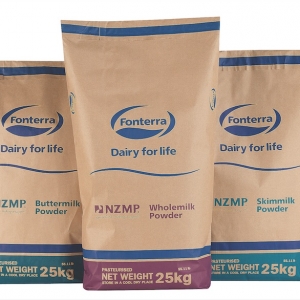Tatua chief executive Paul McGilvary says the balance between demand and supply of dairy products is at play.
Since February, global dairy prices have dropped by 30% which McGilvary says is a “steep decline”.
“It’s how that balances out with the demand from China which has been a bit down,” he told Dairy News.
“China had a very difficult time last year with the supply of their internal market.
“This year I will expect they will have slightly less problems and therefore their own supply will be a bit better.”
McGilvary says he believes the high payouts of last season will return at some stage given the volatility of the market.
“You’ve got a market dynamic in having a great range of countries within the Asia Pacific region who are getting wealthier and the first thing they do is upgrade their food consumption, particularly for their children.
“That growth in wealth within these countries is going to drive demand for our products and I can definitely see it pushing payouts further up.”
Last week’s GlobalDairyTrade auction saw the GDT price index drop 4.2% to US$3756 a tonne, the eighth consecutive drop and the lowest since February 2013.
Rennet casein slumped 10.2% to US$10,672 a tonne, and whole milk powder sank 8.5% to US$3594 a tonne. Anhydrous milk fat slid 5% t to US$4058, while butter milk powder fell 1.9% to US$3628 a tonne.
Butter was unchanged at US$3634 a tonne.
Cheddar climbed 8% to US$4236 a tonne, while skim milk powder rose 2.1% to US$3863 a tonne.
Milk protein concentrate and lactose weren’t offered at the event.
There were 144 winning bidders out of 195 participating bidders at the auction over 13 rounds. The number of qualified bidders was 738, up from 734 two weeks ago.
Last month Rabobank warned that producers may have to wait until 2015 for a revival in prices, with milk output much improved in major exporting nations, but Chinese buyers having stepped back, after early-year stockpiling.
“China bought more than we anticipated in the first five months of the year. It now appears they also bought far more than they needed,” the bank says.















